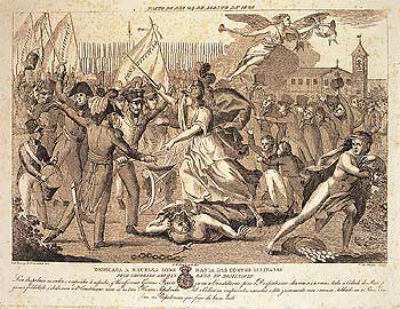It is the political doctrine that grants unlimited authority and power to a monarch, who comes to exercise absolute supremacy. an absolute monarch exercises unrestricted political power over the state and its people.
In the absolutist monarchical political system, the monarch is not subject to contestation or regularizations carried out by any other body, be it judicial, legislative, religious, economic or electoral.
The two main theorists of this period were Thomas Hobbes (1588 – 1679), which was based on a radical and pessimistic theory about humanity, claiming that men are born selfish and bad and Jacques Bossuet (1627 – 1704), who related politics to religion, supporting the idea that monarchs were, in the first place, instituted by God to govern the people.
The characteristics of monarchical absolutism
Absolute monarchy is defined by:
- a single person dictates the rules in public administration;
- the rules and laws imposed by the monarch cannot be revoked or questioned;
- the king has absolute control over the region or country.
- absolutist power consisted in taking away from feudal lords the power they had over their lands. Thus, kings begin to create bureaucracies and national armies. It's called the monopoly of violence.
The monarchy was supported by the Catholic Church, which claimed that a particular person or family she was chosen by God to rule as agent of the divine on Earth.
The absolute monarch responded only to God, that is, he could not be removed or questioned by men and was above reproach.
Within monarchical absolutism, anyone who spoke out against the king or disobeyed his laws was also disobeying God.
How did monarchic absolutism arise?
It originated in early modern Europe and was inspired by the individual leaders of the new nation-states created in the disruption of the medieval order. The power of these states was closely associated only with the power of their rulers.
In the 16th century, monarchical absolutism prevailed in much of Western Europe, and was widespread in the 17th and 18th centuries.
In addition to France, whose absolutism was summed up by Louis XIV, absolutism existed in a variety of other European countries, including Spain, Prussia and Austria.
 King Louis XIV (1643–1715) of France, an absolutist monarchical king who was known by the phrase: “L’état, c'est moi” (“I am the State”).
King Louis XIV (1643–1715) of France, an absolutist monarchical king who was known by the phrase: “L’état, c'est moi” (“I am the State”).
The most common defense for the permanence of monarchical absolutism was that monarchs possessed "the divine right of kings."
This view even justified tyrannical rule as divinely ordained punishment, administered by rulers, for human sinfulness.
In its origins, the theory of Divine Law can be attributed to the medieval conception of the granting of power. temporal power of God to the political ruler, while spiritual power was given to the head of the Catholic Church Roman.
However, the new national monarchs asserted their authority in all matters and tended to become heads of church and state.
Enlightenment and monarchical absolutism
The Enlightenment and its ideals of freedom had a great impact on the absolute monarchs' ability to continue to rule as they had done.
Influential Enlightenment thinkers questioned the traditional authority and right to rule by monarchs. Thus begins a wave of change across much of the Western world, including the birth of capitalism and democracy.
Today, very few nations continue to exist with an absolute monarch, but some examples remain, such as: Qatar, Saudi Arabia, Oman and Brunei.
already the Great Britain is an example of constitutional monarchy. The prime minister holds real political power and the role of Queen Elizabeth II is primarily ceremonial.
Enlightened Despotism
Enlightened despotism, also called benevolent despotism, was a form of government in the century XVIII in which absolute monarchs sought legal, social and educational reforms inspired by the Enlightenment.
They typically instituted administrative reform, religious tolerance and economic development, but they did not propose reforms that might threaten their sovereignty or disturb the social order.
What is the difference between constitutional monarchy and absolute monarchy?
Absolute Monarchy:
- the monarch has the supremacy of the government and is the only one who makes the laws;
- the monarch has absolute power to relate and take decisions with foreign countries;
- there is no Constitution to control laws and decisions.
Constitutional monarchy:
- the monarch's power is limited and usually only ceremonial;
- the country's citizens elect leaders, such as ministers, to make laws;
- the prime minister holds real political power over the nation;
- the monarch's power is limited by a Constitution.
See too:
- 5 characteristics of absolutism
- Absolutism
- Enlightenment
- Monarchy
- Constitutional monarchy


